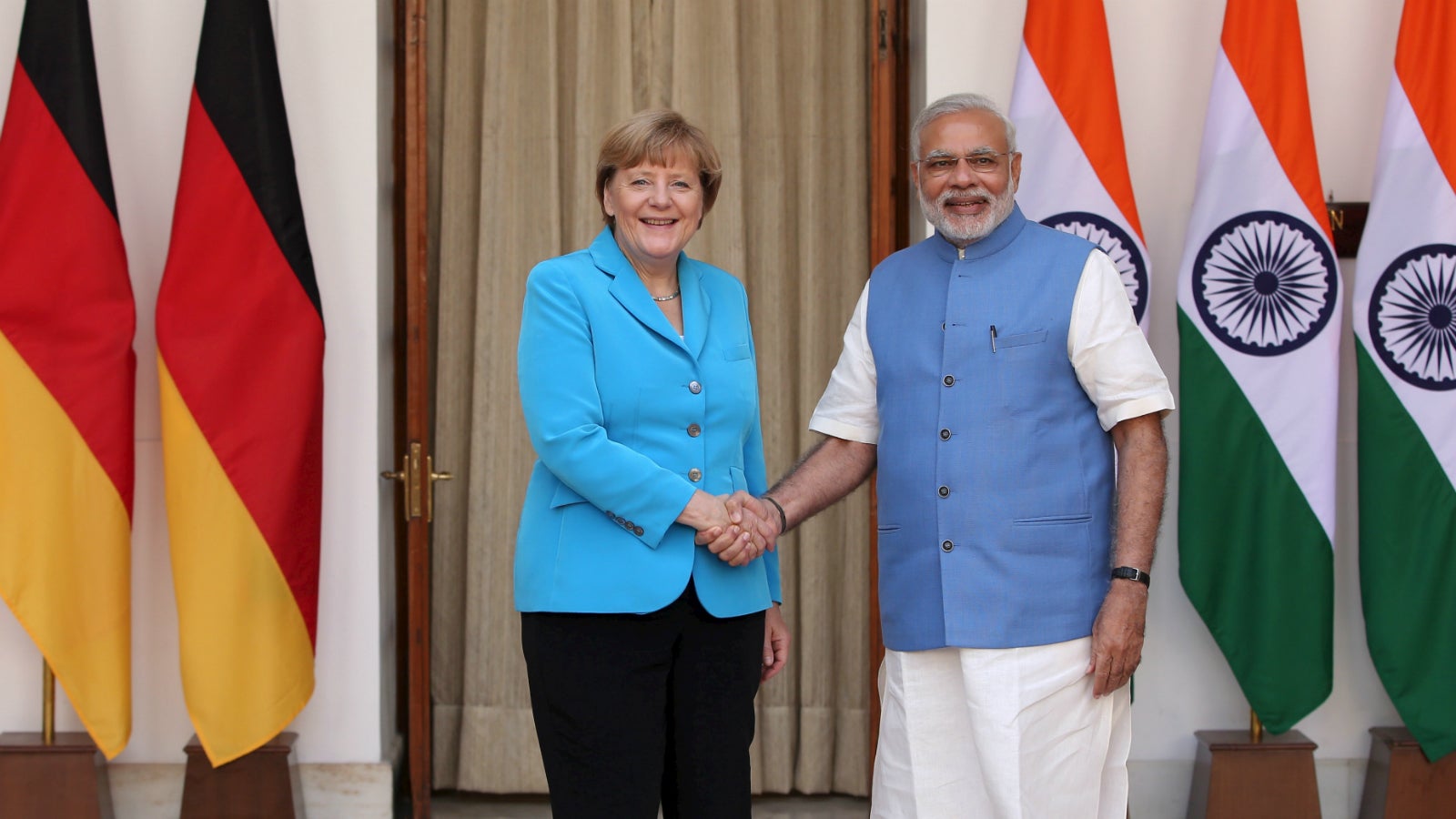The one thing Modi and Merkel should be obsessing over: Boosting business
Angela Merkel’s trip to India didn’t exactly start off as planned. The German chancellor’s official plane broke down, and she had to hitch a ride on a German military aircraft to reach New Delhi.


Angela Merkel’s trip to India didn’t exactly start off as planned. The German chancellor’s official plane broke down, and she had to hitch a ride on a German military aircraft to reach New Delhi.
But her arrival in a military jet is not without symbolism. After all, Europe’s largest economy is making a push for its businesses to align more closely with India’s manufacturing sector, especially prime minister Narendra Modi’s “Make in India” initiative. And the defence industry is a prime target for increased collaboration.
“The prime minister has a very ambitious economic development programme for India and Germany intends to contribute to it and support it,” Merkel said after arriving in New Delhi. The chancellor’s delegation includes Germany’s ministers for foreign affairs, food and agriculture, education and research, economic cooperation and development, and a group of business leaders.
Clearly, the focus is on boosting business, and it should be so, because trade between India and Germany is stagnating.
Germany has long been a manufacturing powerhouse in the heart of Europe, and for Modi’s “Make in India” plan—which aims to raise the manufacturing sector’s contribution to India’s GDP from 15% to 25%—to take off, a strong partnership with Merkel will be immensely valuable.
Not that the astute Indian prime minister hasn’t already made the right noises to draw in German corporates. In April, he travelled to Germany on a three-day visit, pitched strongly for “Make in India” and even inaugurated the Hannover Messe, the world’s largest industrial fair.
The marketing may be working already. For instance, ThysenKrupp, Germany’s industrial engineering conglomerate, is reportedly mulling a partnership in India to build submarines for the Indian Navy. Siemens AG, one of the world’s largest engineering firms, is also looking to expand in India with investments worth €1 billion.
Germany is currently India’s largest business partner in the European Union and the sixth-largest in the world. Germany is also India’s seventh-largest investor (pdf) with total foreign direct investments (FDI) of $8.2 billion since April 2000.